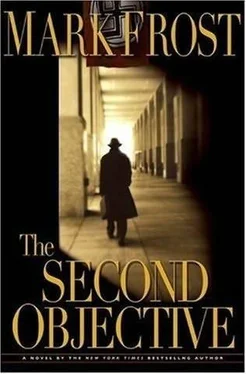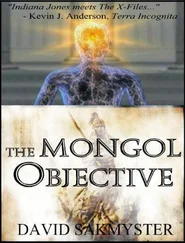After watching his staff struggle and fail to produce a satisfactory statement to commemorate the moment, with characteristic modesty General Eisenhower summed up the entire war effort in a single sentence:
“The mission of this Allied force was fulfilled at 0241 local time, May 7, 1945.”
Brooklyn, New York
OCTOBER 4, 1955, 2:00 P.M.
Each afternoon, outside the urgent-care wing of the Veterans Administration Hospital on Seventh Avenue, nurses wheeled their patients out onto a western-facing plaza overlooking a public golf course, to soak up the last heat of Indian summer. The play-by-play broadcast of the World Series could be heard from a dozen different radios, the voices of Red Barber and young Vin Scully setting the scene. After losing two of the last three championships to the despised Yankees, the Brooklyn Dodgers had once again carried the Series into a seventh and deciding game.
When Bernie arrived for his visit, he expected to find Earl on the plaza, but didn’t see him there and went back to look for him in his room. A young, friendly nurse whom he didn’t recognize was working the floor. They met just outside of the room, as Bernie glanced in at Earl.
“How’s he doing today?”
“Feeling a little poorly this morning,” she said.
“You’re new, aren’t you? What’s your name?”
“Charlene. I’ve been here a few weeks.”
“Charlene, I’m Bernie.”
Bernie held out the small bouquet he always brought to brighten up the room and asked if she could help him find a vase. He walked with her to the nurses’ station.
“Where you from, Bernie?”
“Here. Brooklyn.”
“Yeah? Me, too,” she said. “Mr. Grannit doesn’t get many visitors.”
“I come by every Sunday.”
“See, that’s why, I don’t usually work weekends.”
“Anyway, kind of a local holiday today, isn’t it? For a Tuesday.”
“For any day, you kidding? I’m living and dying with every pitch.”
“You want to listen to the game with us? We’ll put it on in his room.”
“Thanks, I’ll be in and out. Just about everybody in here’s got it on the radio.”
“They say you could walk from one end of Brooklyn to the other today and never miss a pitch,” said Bernie.
“I believe that.”
She held out the small vase she’d filled with water, and he nestled the flowers inside. She noticed the worked-in dirt and grime on his hands and under the nails. They walked back to the room.
“You a relative, Bernie?”
“No, just a friend.”
“I don’t believe Mr. Grannit has any immediate family, does he?”
“Not that I’m aware of.”
They entered the room. Earl sat propped up in the bed, his face turned to the single window. He showed no sign that he’d noticed their arrival. Charlene set the flowers on the bedside counter. Bernie switched on the radio, and the sounds of the warm-up show came across, Red and Vinny running down the lineups as the crowd settled into Yankee Stadium. Bernie pulled up a chair beside the bed.
“What do you think?” asked Bernie. “You think today’s the day, Earl? I really think we’re going to do it. With Podres going for us, he had their number last game. I don’t think they can touch him.”
Earl’s right arm sat folded up beside him, atrophied and useless. He had some movement in the left hand, to signal for things he wanted or needed. Bernie and the staff had learned how to read most of those requests. This time, as the game started, he gestured in a way Bernie couldn’t decipher. Finally, he realized Earl wanted to hold his hand for a while as they listened. Earl looked directly at him, which he didn’t usually do. His features had been twisted by the series of strokes he’d suffered, and some days his eyes stayed dull, but today Bernie could see a spark. When Gil Hodges singled in the game’s first run in the top of the fourth and Brooklyn took the lead, Earl slapped his hand on the bed a few times and nodded his head.
It looked like a sure thing. Podres was too strong. This time they were going to do it. After fifty-five years Brooklyn was finally going to win the Series.
Three weeks later, two days after Earl died, Bernie received a call at the station from an attorney named Jack Meyer, who worked out of a small storefront near Grand Army Plaza in downtown Brooklyn. He mentioned that he was handling the details of Earl’s estate and had a couple of questions for him. Bernie arranged a time to see him during his lunch hour and took the trolley to his office.
Meyer worked alone in a cramped single room, piled halfway up the walls with accordion files and loose paperwork. A round, balding man in his mid-sixties with a welcoming smile, he welcomed Bernie in and gestured toward the chair in front of his desk, the only other place to sit.
“Apologies in advance for my filing system,” said Meyer. “I’m a few weeks behind on my paperwork.”
Bernie said he didn’t mind, uncomfortable as always in an encounter with any form of authority.
“If you don’t mind my asking, how did you know Earl Grannit?” asked Meyer.
“We met during the war.”
“Did you serve together?”
“Not in the same unit. But that’s where we met.”
“Where are you from originally?”
“Brooklyn. That’s what we realized. That we were from the same neighborhood.”
Something of Bernie’s reticence came across. “I don’t mean to pry,” said Meyer. “I’m just trying to understand the relationship. I knew Earl’s father; I represented the family for many years. I never heard Earl mention you.”
“He was never much of a talker,” said Bernie.
“No,” said Meyer, with a warm smile. “But he made the most of the words he let go of.”
“Yes, sir. After the war, we stayed in touch. When he had the stroke, I started helping out at the gas station. I’m a mechanic.”
“I see.”
“Earl had a rough time of it.”
“I know he was badly wounded over there. Took him years to recover.”
“See, I don’t think he ever really did.”
“It’s a blessing his suffering is over,” said Meyer. “So our business here today is short and simple. If you knew him as well as you say, you won’t be surprised to hear that Earl took very precise care of his affairs.”
Bernie smiled slightly.
“I have his will here. He’s left everything to you.”
Bernie couldn’t speak for a moment. “Excuse me?”
“You’re his sole heir. Don’t run right out and move to West chester; there’s not a lot, aside from the gas station and a few savings bonds.”
“I thought…He had no other family at all?”
“He had a sister growing up.”
“Where is she?”
“She was killed. There was a robbery at the station. Some punk emptied the till, she walked in on him. A long time ago now, over twenty-five years. She couldn’t have been more than twelve or thirteen.”
Bernie’s own vivid impressions of that day came flooding back and his eyes filled with involuntary tears. He could even pick a young policeman out of the crowd in his memory who might have been…
“As I understand it, Earl had just joined the police force. Had to work a double shift that day when he would normally have been at the station. Terrible, terrible business. They never found the killer. Family never got over it. Two years later Earl’s father dies of a heart attack. His wife went the next year. There’s one theory that she killed herself. Didn’t he ever tell you any of this?”
“No, sir. He never did.”
“Well,” said Meyer, sympathetic to Bernie’s show of emotion. “He was a hard man to know.”
Bernie composed himself before he spoke again. “You have no idea what he did. Over there. Nobody knows what he did. More than any man I know. Did he ever tell you what happened?”
Читать дальше












